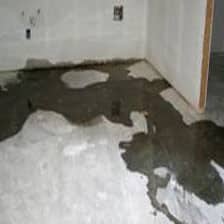If you are experiencing slab leaks in your home, the best way to fix them is to get the pipes rerouted. This process can be quite costly since you will need to remove the floors and dig up the concrete slab. However, this is a good option for homeowners with a one-story home. The pipes will continue to leak while you fix the broken ones. Slab leaks can occur due to a number of different reasons, and you can find out the reason why by reading this article.

To test for a slab leak, you can use a water meter. Turn off all your plumbing fixtures and watch your meter for at least 15 minutes. You should see a change if your water meter registers more water than usual. If there is a noticeable change, you may have a slab leak. However, before calling a plumber, you should take a look at your water meter. It is important to know that a leak can cause extensive damage to your property, so it is important to know what to look for when you suspect a slab leak.
Slab leaks can damage your home’s structural integrity. If not fixed immediately, these leaks can cause damage to appliances, flooring, walls, and furniture. Even worse, slab leaks can cost you thousands of dollars in repair costs. Slab leaks are extremely difficult to detect, which is why you should call a professional to help you get your home back in working order. If you discover the leak early enough, you can avoid further damage to your home.
Slab leaks are common. However, the frequency of these leaks depends on the climate you live in. Slab leaks are most common in earthquake-prone states, where the ground shifts and places massive pressure on the pipes. Furthermore, older homes are more susceptible to slab leaks due to corroded copper and Orangeburg sewer pipes. So, before calling a plumber, consider keeping your plumbing in working order. It may be the only way to prevent slab leaks.
In addition to getting your home repaired, you should also check if your insurance covers slab leaks. Your policy may have optional coverage for such damages, but most people don’t know that this coverage exists. Slab leak coverage is usually optional and covers only the costs related to foundation and slab repairs. Moreover, it doesn’t cover plumbing work, which is usually the largest portion of the cost. You should also make sure that your insurance covers any other structural damage associated with your home.
If you notice puddles on the side of your home or floor, then you may be experiencing slab leaks. These puddles may be coming from cracks in the foundation, between tiles, under a cabinet, or underneath the sink. The most common location for slab leaks is near sinks and toilets. Another sign of a slab leak is if you notice mold or mildew growing in your home.
Slab leak repair requires a plumber to locate the source of the problem. If you do not, you may have multiple leaks throughout the house, which can create an enormous mess inside your house. A professional plumber uses different tools to find the source of the leak. They trace the path of the copper line under the slab, listen to the leak for the loudest noise, and use infrared thermometers to find the hot spot.
The cost of repairing slab leaks varies depending on the method used. The easiest way to fix slab leaks is to reroute plumbing, which will require a small tunnel. It may cost anywhere from $150 to $400, depending on the method you choose. However, this is still much less expensive than the cost of repairing a crumbling concrete foundation. It is important to remember that slab leaks are difficult to repair, and they can cost tens of thousands of dollars.
Slab leaks are not an uncommon problem. While it is easy to detect a slow drip under a bathroom sink, you might not be able to detect the problem until it is too late. You should also check the floor for dampness or warm spots. You may also notice some mold growth on the floor. Luckily, there are ways to fix slab leaks before they become an important problem. So, keep reading to learn more about the causes and solutions for slab leaks in your home.
